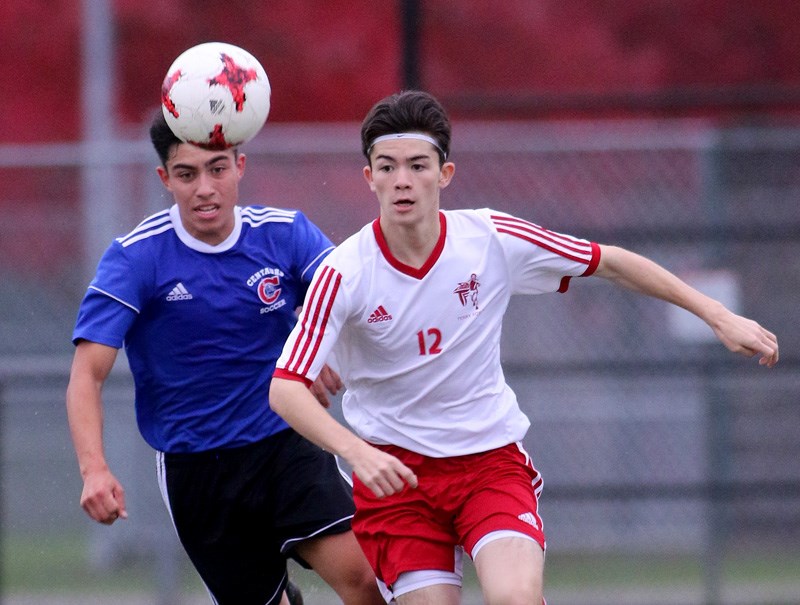The only score this year in British Columbia high school sports was 212-77 and it didn’t come on the field or court.
B.C. secondary schools voted overwhelmingly by that margin, or 73.3 per cent, in favour of changing the longstanding model of governance.
The vote met the required threshold of 67 per cent. Each of B.C.’s secondary schools was eligible to vote online Saturday. Most left it up to their athletic directors but some principals or vice-principals made the decision on behalf of their schools.
It was positioned as a battle between sports officials and bureaucratic administrators. The now discarded system was run by 15 volunteer high school sports commissions under the umbrella of B.C. School Sports.
The new model voted in will eliminate the commissions, which will be relegated to serve only in advisory capacities.
The BCSS will now establish a 55-person assembly to run high school sports.
The BCSS said the assembly will be comprised of three representatives each from the nine school zones, one being a principal or vice-principal, and rest from various groups such as the B.C. Teachers Federation, school district employees and representatives from the provincial education and tourism, arts and culture ministries. The Province reported Friday that the BCTF said it has not been consulted.
Proponents of the change touted the uniformity that one large assembly, with various voices represented, will provide across all high school sports. Those against the proposal pointed to the expertise of the commissions and that they know their own sports best.
The sports commissions organize the B.C. high school championships, some of which are big and complex annual affairs to stage, such as the basketball championships at the Langley Events Centre, football championships at B.C. Place and rugby championships at Rotary Stadium in Abbotsford.
Several future NBA, CFL and World Cup players have played in those championships.
The oldest is the B.C. high school basketball tournament, of which the boys’ portion celebrated its 75th anniversary in March 2020 as the last championship contested before the pandemic. Another big one is the B.C. high school track and field championships, historically held at Swangard Stadium in Burnaby, but now moved around the province, and out of which have come numerous Olympians.
“I can’t imagine anyone messing with those,” said Darren Reisig, athletic director of Claremont Secondary, and president of Lower Island School Sports.
Even in their now advisory-only roles, the expertise of the sports people in the commissions will still be vital within the new governing structure.
“I am hoping all the amazing volunteers in the commissions will stay on in their new capacity and keep doing the great work they do,” said Reisig.
Reisig voted for the change, but expressed “shock” by the margin at which it passed. “We will work through the changes. I think it will create a more efficiently functioning system,” he said. “Hopefully, our student athletes won’t notice a difference.”
School sports is expected to return in the fall.
cdheensaw@timescolonist.com



